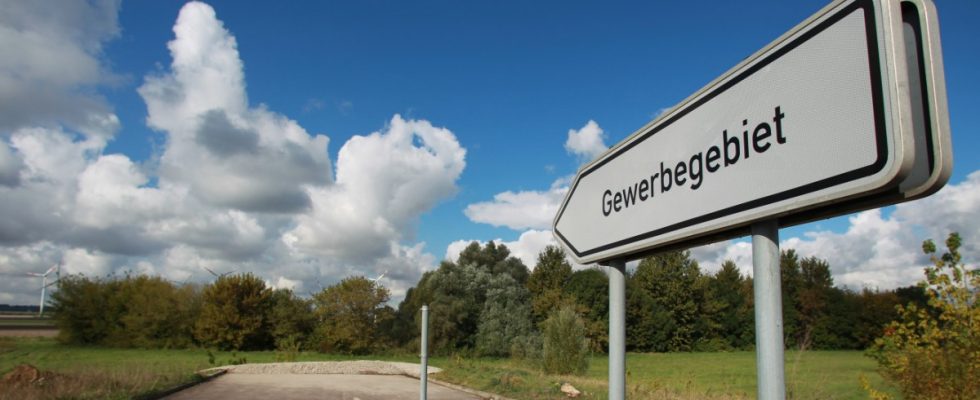The farmers and the consumption of land, that is a very ambiguous issue: On the one hand, the farmers are among the harshest critics of the conversion of agricultural land into building land. Because they lose the soil on which they work day by day. On the other hand, they benefit from the sale of their land, especially in the vicinity of metropolitan areas. That is why the farmers’ functionaries, up to and including the Bavarian farmers’ president Günther Felssner, usually practice the balancing act. In their speeches, they castigate the surface eater in sharp words. If you ask them what you can do about it, they wobble. So far, they have rejected a law with a fixed upper limit for land use.
The Upper Bavarian President of Farmers, Ralf Huber, is no longer doing this balancing act. He says: “All previous attempts to stem the spread have failed. That’s why it’s time for a law.” On top of that. On Monday, Huber presented the draft law “Protection of the Bavarian cultural landscape and sustainable land use (5 ha target)” together with the Greens parliamentary group leader, Ludwig Hartmann, and Professor Felix Ekardt from the Sustainability and Climate Policy Research Center in Leipzig. The Greens want to halve land use in Bavaria by 2028. “Land and soil cannot be increased,” says farmer leader Huber. “Everything that we concrete over is gone – forever. For food production as well as for nature.”
Land use is one of the most pressing environmental problems in Bavaria. It’s not just the Green Party politician Hartmann who says that. But that’s what experts like Professor Ekardt say. Every day in Bavaria, around ten hectares of formerly open countryside are converted into building land for settlements, trade and industry, roads and other transport routes. Statistically, the agricultural land of an average farm in Bavaria is lost every three days. Seen over four years, that corresponds to the area of the Upper Bavarian Ammersee, Hartmann calculates.
However, it is not only the farmers who are affected by the widespread consumption. But also nature. Because the daily shrinking of the open landscape means a massive loss of habitats for plants and wild animals. And that accelerates species extinction. In addition, the surface consumption has a social component. Because the designation of more and more new residential and commercial areas goes hand in hand with the desertification of many town centers and more traffic, since the new discounters and supermarkets on the outskirts of town are usually easiest to reach by car.
Peasant leader Ralf Huber joins forces with the Greens against the widespread consumption.
(Photo: private)
With their draft law, the Greens in the state parliament are following up on their 2018 referendum to “curb concrete flooding”, which the Bavarian Constitutional Court declared inadmissible at the time. The central point of the former and the new initiative is a binding upper limit for land use in Bavaria of five hectares per day. It is to be introduced gradually by 2028. The resulting annual area budget is divided among the municipalities in Bavaria. The decisive factor is the respective number of inhabitants. Local authorities with fewer residents are to receive more space per capita and year than those with large populations. “In this way we are promoting rural areas,” says Hartmann.
“Therefore, the following must apply in the future: think before the excavator arrives”
According to Hartmann, the municipalities can be flexible with the respective budget. For example, you can save it. You can transfer it to other municipalities or buy shares from other municipalities. You can enlarge it through your own initiatives, for example by renaturing brownfield sites, and the like. “We want to leave our children a Bavaria worth living in, a Bavaria that impresses with its beautiful landscapes and biodiversity,” says Hartmann about the new initiative. “Therefore, the following must apply in the future: Think before the excavator comes.”
For the Green politician, the support of the peasant leader Huber is an invaluable gain. Because despite all the criticism of the surface consumption, the farmers’ association has always remained loyal to the CSU and the Free Voters. So far, both parties have strictly rejected a law against land consumption. When it comes to saving space, her motto is: volunteering has priority. “But if the voluntariness doesn’t work, then binding rules are needed,” says Huber. “And if the Greens work well on a subject, then I support them.”

